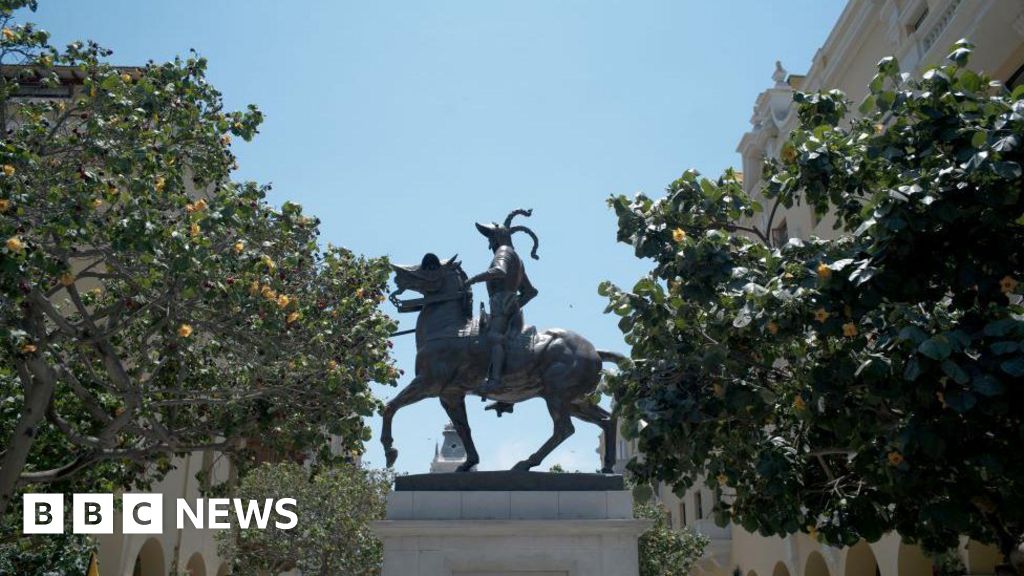ARTICLE AD BOX
Image source, Getty Images
Image caption,Germany has also added Denmark, France, Norway and Lebanon to its high risk list
Germany has become the latest European country to ban most travellers from Britain, to try to slow the spread of the Omicron variant.
German nationals and residents will still be allowed to enter from the UK.
They must have a negative test and quarantine for two weeks, regardless of whether they have been vaccinated.
The measures took effect on Sunday evening. France has already introduced similar curbs as coronavirus infections surge in Britain.
The Robert-Koch-Institut (RKI) - a federal health agency - announced the new rules as it classified the UK as a virus variant area of concern, the highest Covid risk level.
Denmark, France, Norway and Lebanon have also been added to Germany's high risk list and travel from those countries will also be restricted.
The decision was made by the RKI on Saturday, when the UK reported 90,418 new Covid cases - following days of record highs. On Sunday, a further 82,886 cases were reported.
London Mayor Sadiq Khan declared a "major incident" in the capital on Saturday due to sharp rise in cases. On Saturday, 26,418 new cases reported - the highest number since the start of the pandemic.
Scientific advisers have warned that England's hospital admissions could reach 3,000 a day without further restrictions.
Although the number of new confirmed coronavirus cases in Germany is lower than in the UK, with 50,968 new cases reported on Friday, the number of deaths following a positive Covid test is rising. Germany reported 437 deaths on Friday.
German health minister Karl Lauterbach said he expected the Omicron variant to unleash a "massive fifth wave" of the pandemic.
He said Germany had to prepare for a challenge "that we have never seen in this form before" and the "more we can push back... the better".
Speaking on broadcaster ARD on Sunday, Prof Lauterbach ruled out a lockdown before Christmas, saying: "There will not be a lockdown before Christmas here. But we will get a fifth wave - we have crossed a critical number of Omicron infections."
A government advisory group warned of a growing risk to Germany's "critical infrastructure", saying hospitals, health services and basic utilities could be disrupted if further steps were not taken.
A number of restrictions are currently in place in Germany, most of them affecting unvaccinated people who are barred from most public places. Around 70% of the German population is now fully vaccinated.
France is also worried about the spread of Omicron in the UK and authorities there banned UK tourists from travelling between the two countries on Saturday.
Under its new rules, UK citizens now need a "compelling reason" to enter France, with trips for tourism or business banned.
Hauliers, transport workers and French nationals are exempt.
A rush of passengers travelling to France on Friday to beat the country's ban on UK tourists led to a knock-on effect on freight traffic, resulting in long queues of lorries.
Image source, PA Media
Image caption,Freight lorries queuing at the port of Dover in Kent
There were lengthy tailbacks on the M20 motorway in Kent heading to Dover and at the entrance to the Channel Tunnel on Saturday.
Many people brought their Christmas travel plans forward to avoid the new rules.
Have you needed to change your travel plans due to the restrictions? Email haveyoursay@bbc.co.uk.
Please include a contact number if you are willing to speak to a BBC journalist. You can also contact us in the following ways:
Or use this form to get in touch:
If you are reading this page and can't see the form you will need to visit the mobile version of the BBC website to submit your comment or send it via email to HaveYourSay@bbc.co.uk. Please include your name, age and location with any comment you send in.

 3 years ago
30
3 years ago
30








 English (US) ·
English (US) ·